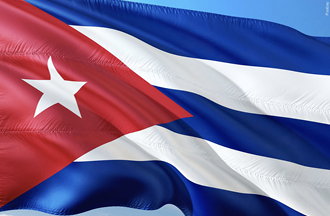by Nuria Barbosa León, Granma
Farmers and representatives from companies in the United States and Cuba agreed that the economic, commercial and financial blockade imposed by the U.S. government seriously limits agricultural commerce and hinders further development of the potential that exists in this sector, which includes technology and inputs, as well as harvested food products, during the Third Cuba-U.S. Agricultural Trade Conference, which met in Havana April 6-8.
Paul Johnson, president of the United States Agricultural Coalition for Cuba, noted that agriculture continues to be the most important sector involved in current bilateral relations and called on his colleagues to make an even greater effort to promote these ties.
“The blockade significantly limits trade since there are many more products we could export to Cuba; we must work with Cuban producers to increase local production, invest our capital and knowledge in cooperative projects, work together to reduce losses of harvests and import Cuban goods to the United States,” he said.
Frank Castañeda, president of the Agricultural Enterprise Group associated with Cuba’s Ministry of Agriculture, stated that this hostile policy “has escalated to extreme dimensions, affecting the population’s ability to meet its most pressing needs, which include food.”
Nonetheless, he added, “It has not stopped us from advancing toward food sovereignty,” emphasizing, “Development of agriculture is a strategic necessity for Cuba; transformations are being introduced and work is being done to promote cooperation and associations that contribute toward that end.”













